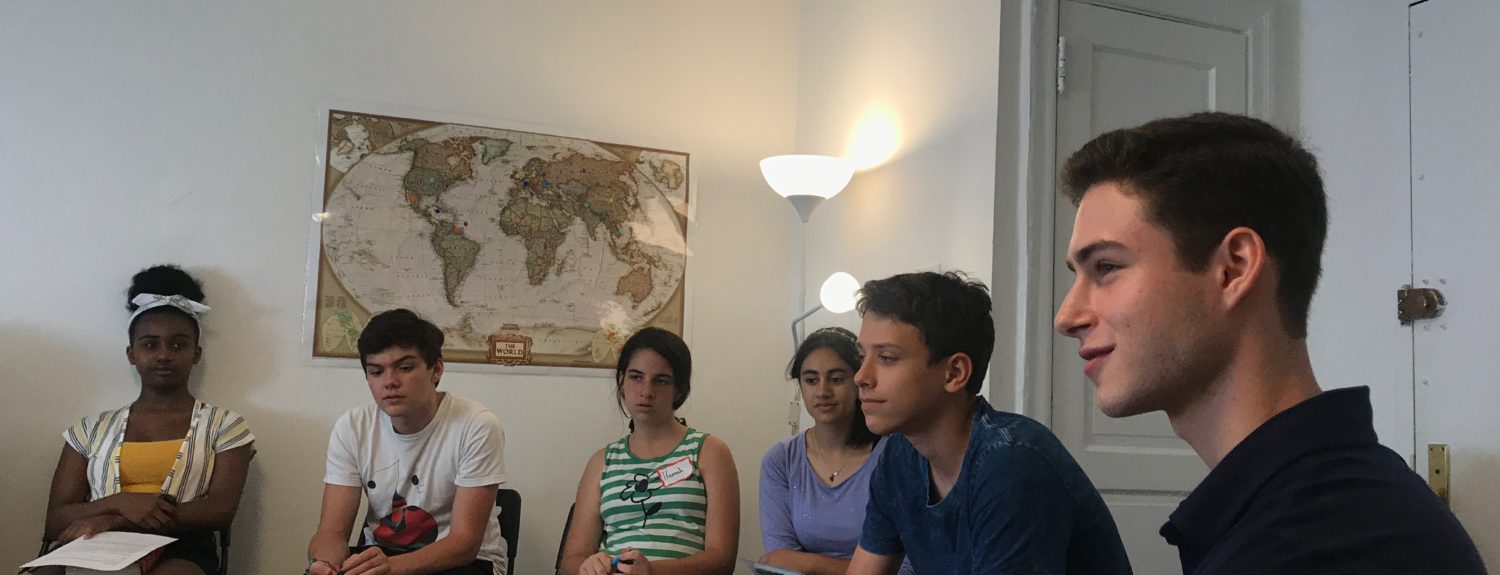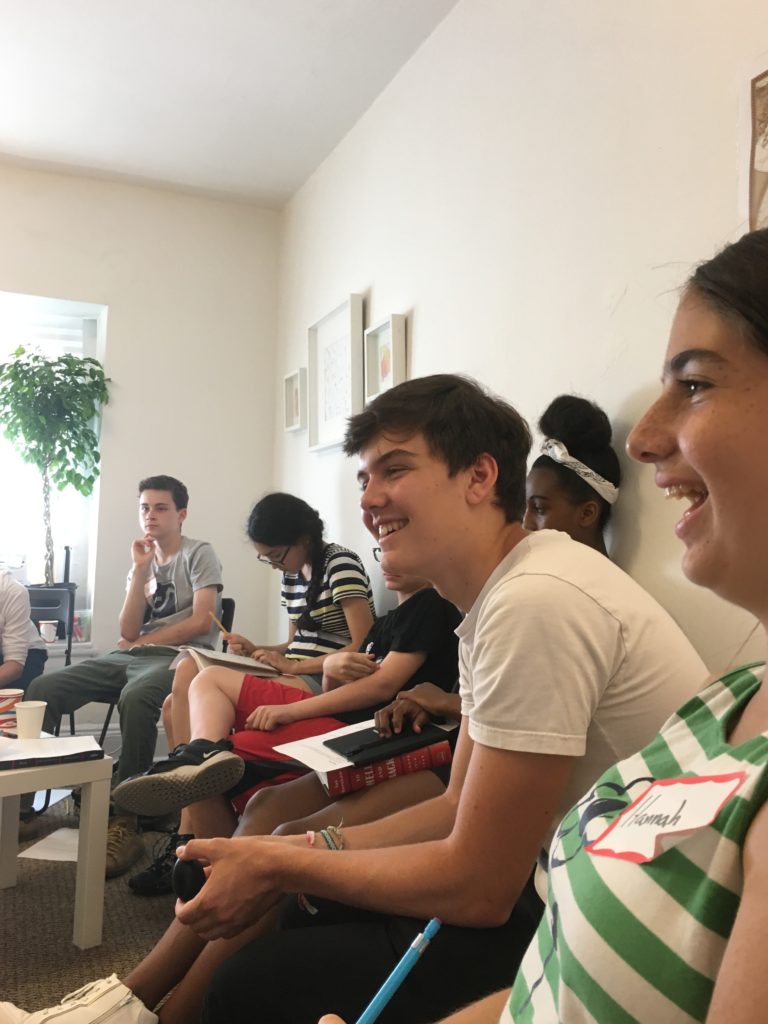Education
“Rising Leaders,” a Peer-to-Peer Project
By Olivia Chen
Staff writer
The 15 trainees, aged 11 to 14, listened and learned as their three instructors, aged 18 to 19, schooled them on how to debate the pros and cons of a topic. That day’s make-believe topic was vanilla ice cream.
What, asked Abigail Neely, 18, if vanilla was the color and flavor of white supremacy? “A cone with white creamy goodness inside … What does that represent … ?”
Neely was being deliberately ridiculous. A few of the younger students giggled. Yet, they were focused on what she was trying to teach. And that was this: If you’re going to win at debate, you’ve got to be confident, from the get-go. You’ve got to look your opponent squarely in the eye, directly critique what he or she asserts. If you don’t, you’ll lose.
That’s one of main lessons that Rising Leaders aims to impart. Neely is one of the students in charge of Rising Leaders, which Elias Silver, 18, launched in May 2019. The organization is driven by Silver’s belief that peer-to-peer learning is some of the best learning there is. Rising Leaders aims to refine the younger students skills in critical thinking, leadership and teamwork. This summer program has three sessions, ranging from seven to 10 days each. Each session costs $1,320, but is free to low-income kids.
“By the time our generation reaches adulthood and must contend with even more machines for work,” Silver said, “the ability to combine analytical, creative and interpersonal skills will be essential. Our program prepares young teens for this future by giving them a first encounter with this broad, interdisciplinary approach to problem-solving.”
Neely, a High School of American Studies graduate, leads the Rising Leaders session on global leadership and awareness, which partly focuses on international conflicts and peacemaking. “I want it to be applicable to the real world,” Neely said. “And for students to ask questions like, ‘Okay, when people need help, how do we help them?’”
Silver will teach effective argumentation, relying on skills he’s been polishing since middle school and as a winning high school debater. “My experience in Model [United Nations] at M.S. 54 under Mr. Barton’s coaching has been seminal in my approach to Rising Leaders,” Silver said. “Even then, there was some form of peer guidance: eighth graders mentored the seventh graders.”
Matthew Kendall, 18, plans to use his knowledge in science, technology, engineering and math—the STEM fields—to engage younger students on ideas such as whether pharmaceuticals can ethically raise prices for medicine. “Think. Believe. Act.” is that session’s title.
“Throughout high school, students will face problems in all subjects that do not have straight-forward answers or, perhaps, do not have any answers at all,” Kendall wrote in an e-mail to this reporter.
The younger students said they like what they’re learning and how they’re learning it. Hands-on experience trumps boring classroom lectures, some said.
“It feels better that other high schoolers teach us because they can easily bridge the connection based on age,” said Eyenain Misgar, 14, who will be a ninth-grader at Bronx High School of Science in fall 2019. “They can tell what we understand and what we don’t—unlike most older teachers [do], especially those that force topics onto us.”
Eighty percent of 1,300 students told researchers from Barnes & Noble College, a subsidiary of Barnes and Nobles Education, Inc., that they preferred group to individual study sessions and 60 percent answered that they like to exchange new ideas with friends.
Some students’ guardians support Rising Leaders’ peer instruction. “When her mother and I found out that students were doing it, we were like, ‘Wow!’” said Verna Withers, grandmother to Trinity Parris, 12. “That’s when you learn. You learn from each other, you know?”
Trinity said she thrives in Rising Leader’s environment. “Normally, in school, you can’t have fun while you learn. But at this program, I can loosen up. This is where I can be myself and not put on an act.”
Withers supported Trinity’s mother’s decision to apply for Rising Leaders, despite the price. “Here, Trinity can learn how to speak up, communicate with other people, be very voiceful, and a better decision-maker. It’ll be good for her.”
Instructor Jacob Santelli, 17, said, “If we teach students to actually discuss the issues, we can teach them how to have a conversation where they can argue respectfully and actually listen.”



